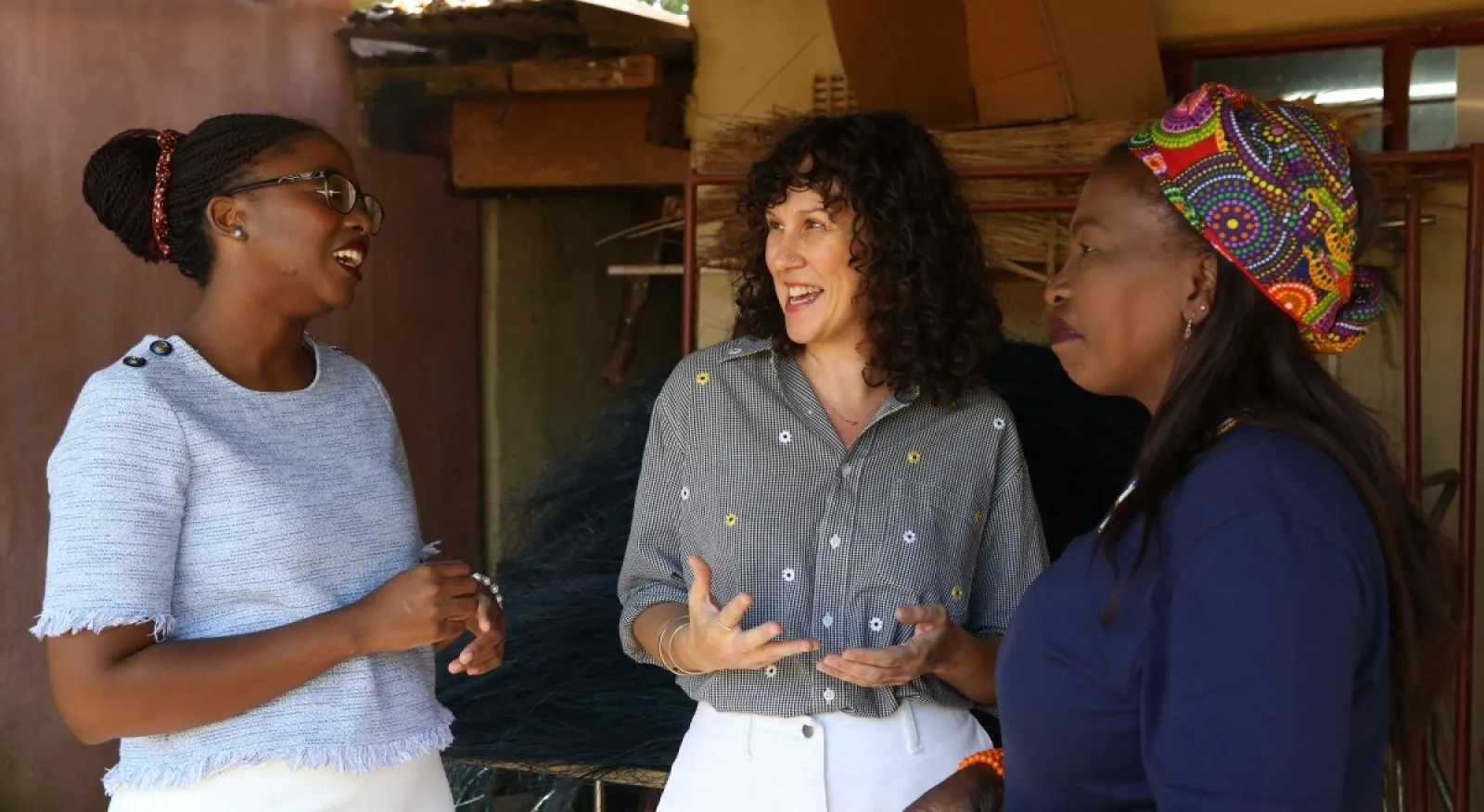Women empowerment through weaving
Australian volunteer Anissa Dove has shared her experience in the fashion industry with women in rural Eswatini to help them earn a higher income.

After 12 years in the Australian fashion industry, Anissa Dove decided the time had come for a career shift. She spent time working with artisans in the Northern Territory, before applying to become part of the Australian Volunteers Program.
Anissa was successful in her application for a 15-month-long assignment as social development coordinator at Gone Rural – a social enterprise in Eswatini, a small country bordered by South Africa and Mozambique.
For 27 years Gone Rural has provided ways for women in Eswatini to generate income through weaving and other handicrafts. Today the organisation works with more than 700 women across the country.
Anissa’s role has been focused on developing and piloting a program to train weavers from the remote Lavumisa region in southern Eswatini to teach women in other parts of the country their unique weaving style.
'It’s an extension of something that happens naturally within family groups,' explains Anissa.
'This is a craft that’s passed on from mother to daughter or grandmother to daughter, down generations.'
The Lavumisa technique is much more sought after and profitable than weaving styles of other parts of Eswatini – as it is versatile and structurally sound. Women trained in the Lavumisa technique have the opportunity to generate a much higher income to support themselves and their families.
Nellie Sihlongonyane, Community Liaison Officer at Gone Rural, explains the difference weaving in the Lavumisa technique can make: 'This extra income means better access to education, being able to build better homes, and maybe get electricity – which mean the women can weave during the night because during the day they are working (on farms or in other jobs).'
The project – called the Gone Rural Weaving Academy – has been successful in training 10 master weavers from Lavumisa to be weaving and design teachers. Those teachers have now begun sharing their craft with women from other parts of Eswatini.
The women are paid for their teaching role, which, Anissa says, 'gives the women a huge sense of pride and is empowering for them.'
With her colleagues and the weavers, Anissa has designed a teaching curriculum so the project can continue long after she returns to Australia.
In addition to training the master weavers to teach, Anissa has run workshops with the women to design their own items - something they had never done before.
Anissa taught the women about creative briefs and invited them to draw on their own inspiration for their designs, which have resulted in a range of 11 new pieces.
'They are all unique and different to anything Gone Rural already has,' says Anissa.
'They all have a story. Those items will now be shown to our international buyers and sold around the world.'
As for Anissa, she is keen to pursue her new career path: “I want to keep working with creativity and development. I love seeing people achieving things, and seeing people empowered.
'Compared with fashion – as well as making things to sell, there is also a social purpose and you’re providing something to a community as an outcome.'
Take a look at these two beautiful catalogues featuring the crafts of the Gone Rural Weaving Academy, curated by Anissa: